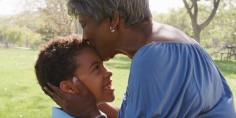Kinship care refers to the primary care of youth by relatives (or non-related adults who share a strong connection to a child) when parents are unable or unavailable to do so. Kinship care plays a vital role in the lives of tens of thousands of families in North Carolina and South Carolina.
Research on kinship care has shown positive child well-being outcomes (stronger feelings of family belonging and connectedness). When children have remained in foster care for longer periods of time, research has also shown challenges such as higher rates of behavioral and educational challenges by the time the relative placement occurs. With increased emphasis on relative placements, child welfare needs innovative approaches that are responsive to the needs of kin caregivers who parent children with complex needs.
In early 2020, with funding from The Duke Endowment, the Family Focused Treatment Association (FFTA), launched a three-year demonstration project to develop and pilot a therapeutic kinship care model in North Carolina. The pilot paired three public-private agency partnerships to build a model that tested ways to strengthen partner relationships and caregiver competencies and skills. The primary goal at this stage of development was to examine what supported and hindered implementation of a therapeutic kinship care program.
Key findings from the Child Trends evaluation of the pilot include:
- Importance of effective partnership and collaboration –Transparent, consistent, and frequent communication are key to gaining clarity on roles, responsibilities, and implementation goals.
- Commitment of leadership – Middle managers can successfully support implementation when they feel supported by top leadership and given the latitude to make decisions, create expectations, and support staff.
- Technical assistance – Ongoing technical assistance is a crucial part of implementation, including training staff, providing coaching both individually and in pairs, and offering opportunities to learn together as a community. It should be an integral part of any attempt to replicate or scale.
- Training for staff and kinship caregivers –Staff and kinship caregivers gained knowledge and skills in kinship care and the family system through their respective training. Effective trainers are open to adjusting materials based on feedback given to strengthen the content and presentation of future training.
- Need for robust kin search and engagement – The model provided tools and training for staff to bolster their skills.
The full evaluation report can be found here. The next three years will continue evaluation activities to learn more about implementation and outcomes youth and kinship caregivers experience in the demonstration project.
How to help
Advocates and policy makers can continue advancing kinship care policies and practices by encouraging and supporting:
- Public and private agencies to forge partnerships that center developing tailored training and wrap-around services
- Training and coaching of the child welfare workforce to increase knowledge of the value and needs of kinship families
- Therapeutic licensure and reimbursement models for children with complex needs





